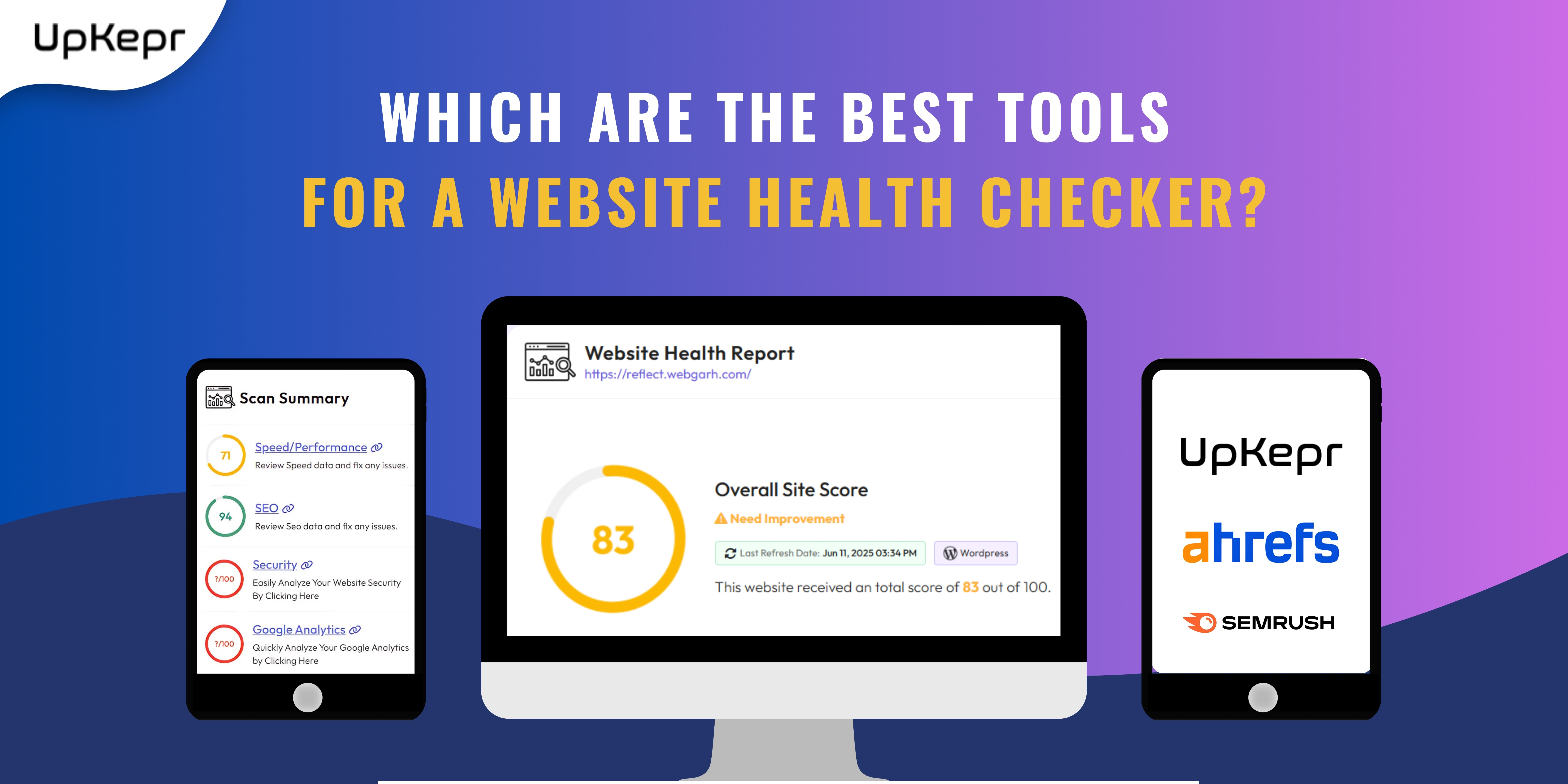 On-Page SEO Optimization – Fix Hidden Errors Killing Rankings!
On-Page SEO Optimization – Fix Hidden Errors Killing Rankings!
The Importance of Regular Performance Audits for Your Website
Written by Upkepr » Updated on: June 17th, 2025

In today’s fast-paced digital landscape, the performance of your website is crucial for maintaining a competitive edge. A well-performing website not only provides a better user experience but also plays a significant role in your search engine rankings and overall business success. One of the most effective ways to ensure that your website remains efficient and effective is through regular performance audits. In this blog post, we'll delve into why these audits are vital and how tools can assist in this process.
What Is a Website Performance Audit?
A website performance audit involves evaluating various aspects of your website to determine how well it performs. This includes analyzing factors such as page load times, responsiveness, server performance, and overall user experience. The goal is to identify areas that need improvement and implement changes to enhance the website's speed and efficiency.
Why Do Regular Performance Audits Matter?
1. Improves User Experience
User experience (UX) is paramount for retaining visitors and ensuring they have a positive interaction with your site. A slow-loading website can frustrate users, leading to higher bounce rates and lower engagement. Regular performance audits help pinpoint issues such as slow page load times or broken links, allowing you to make necessary adjustments to keep users satisfied and engaged.
2. Boosts Search Engine Rankings
Search engines like Google consider website performance as a ranking factor. A website that loads quickly and operates smoothly is more likely to rank higher in search engine results. By conducting regular performance audits, you ensure that your site adheres to best practices for speed and usability, which can positively impact your search engine rankings and increase organic traffic.
3. Reduces Operational Costs
Performance issues can lead to increased operational costs, such as higher bandwidth usage or the need for more server resources. For example, if your website has inefficient code or unoptimized images, it can consume more bandwidth and server resources than necessary. Regular audits help identify these inefficiencies, allowing you to optimize your website and potentially reduce operational costs.
4. Enhances Mobile Performance
With the increasing use of mobile devices to access websites, it's crucial that your site performs well on smartphones and tablets. Mobile users expect fast loading times and smooth interactions. Performance audits can help identify and resolve issues that may affect mobile performance, ensuring that your website provides a seamless experience across all devices.
5. Identifies Security Vulnerabilities
Performance audits are not just about speed; they also involve checking for security vulnerabilities. A slow website could be a sign of underlying security issues, such as malware or a compromised server. Regular audits can help you detect these issues early, allowing you to address them before they become more serious problems.
6. Monitors Website Health Over Time
Websites are dynamic and can change over time due to updates, new content, or external factors. Regular performance audits help monitor your website's health over time, ensuring that it continues to perform optimally despite these changes. This ongoing monitoring is essential for maintaining a high-quality user experience and achieving long-term success.
How Upkepr Website Performance Monitoring Tool Can Help
To effectively manage and improve your website’s performance, you need the right tools. Upkepr Website Performance Monitoring Tool is an excellent solution for this purpose. Here’s how it can assist you:
1. Comprehensive Performance Analysis: Upkepr tool provides detailed insights into various performance metrics, including page load times, server response times, and overall website speed. This data helps you understand how your website is performing and where improvements are needed.
2. Real-Time Monitoring: With Upkepr real-time monitoring capabilities, you can keep track of your website’s performance at all times. This allows you to quickly identify and address any issues that may arise, ensuring that your website remains efficient and user-friendly.
3. Actionable Insights: The tool offers actionable recommendations based on the performance data collected. These insights guide you on how to optimize your website effectively, from improving code efficiency to optimizing images.
4. Historical Data: Upkepr tool stores historical performance data, allowing you to analyze trends over time. This information is valuable for understanding how changes to your website impact performance and for making informed decisions about future optimizations.
5. Alerts and Notifications: You can set up alerts and notifications for performance issues, ensuring that you are promptly informed of any significant changes or problems. This proactive approach helps you address issues before they impact your users.
Conclusion
Regular performance audits are essential for maintaining a high-performing website that delivers an excellent user experience, achieves strong search engine rankings, and operates efficiently. By leveraging tools like Upkepr Website Performance Monitoring Tool, you can ensure that your website remains in top shape and continues to meet the needs of your users. Investing in regular audits and performance monitoring is not just a best practice but a critical component of your overall digital strategy.
Note: IndiBlogHub features both user-submitted and editorial content. We do not verify third-party contributions. Read our Disclaimer and Privacy Policyfor details.
Copyright © 2019-2025 IndiBlogHub.com. All rights reserved. Hosted on DigitalOcean for fast, reliable performance.














